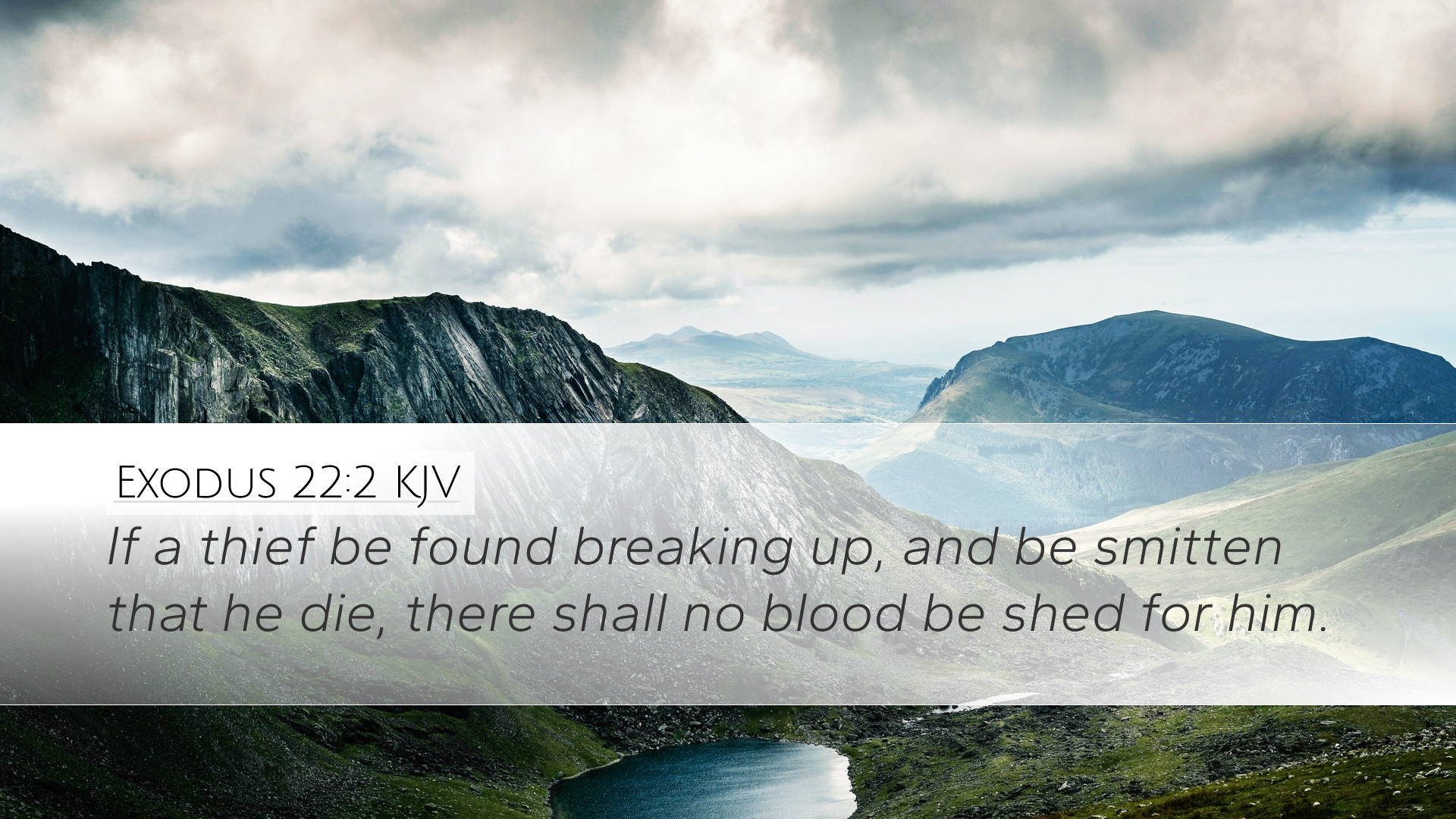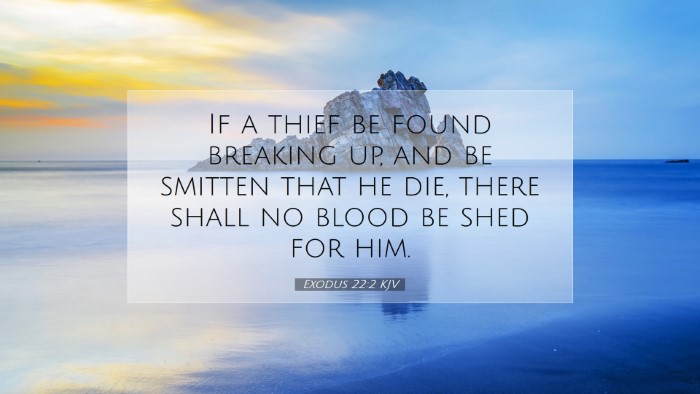Exodus 22:2 Commentary
Verse: "If a thief be found breaking up, and be smitten that he die, there shall no blood be shed for him."
Introduction
This verse from Exodus is part of the broader legal framework given to the Israelites and addresses the moral and legal implications surrounding theft. It presents a crucial teaching on self-defense and property rights, highlighting the societal values during the time of Moses. Understanding its context and interpretations over time provides rich insights for pastors, students, and scholars.
Contextual Background
The laws given in the book of Exodus are known as the Covenantal Law, given to Israel as a guide for living as a distinct community under God's governance. Exodus 22 reflects a segment of social justice, underlining ethical responsibilities towards personal property and individual lives.
Commentary Insights
Matthew Henry's Commentary
Matthew Henry emphasizes the seriousness with which God views theft and the protection of property. He explains that this verse, while focusing on a specific scenario, conveys the broader principle of defending one’s home and property. Henry notes:
- Self-Defense: The verse recognizes the right of an individual to protect oneself and their household from intruders. If a thief is caught in the act, lethal force may be justified.
- Divine Justice: The principle that one who takes life in self-defense does not bear blood guilt emphasizes a divine sanctioning of protecting one’s family and property.
Albert Barnes' Notes
Albert Barnes provides a legal and ethical perspective to this passage. He indicates that the law aims to balance justice and mercy:
- Intent of the Law: Barnes interprets this law as a protective measure for citizens, indicating that the society ought to safeguard its members' interests while not allowing lawbreakers to infringe upon the rights of the innocent.
- Proportional Response: He also discusses the proportionality of response in situations of imminent threat, suggesting that the use of lethal force should be considered measured and only applicable under dire circumstances.
Adam Clarke's Commentary
Adam Clarke offers an exegesis on the nature of property and personal security. His comments illustrate the sociocultural context in which these laws were given:
- Property Rights: Clarke asserts that this verse reinforces the notion of property rights, underscoring that a thief's criminal actions nullify any claim to mercy that may arise from his death while committing the crime.
- Reflection on Society: He encourages readers to reflect on the socio-economic conditions that breed theft and violence, urging a look towards restorative measures in society rather than retributive justice alone.
Theological Reflections
This verse serves not only as a legal stipulation but also as a profound theological assertion. It raises critical questions regarding morality, justice, and community responsibilities:
- God’s Justice vs. Human Law: The balance between divine justice and human interpretation of law invites deeper reflection on how contemporary society applies biblical principles of justice.
- The Nature of Sin and Criminality: Understanding theft as a societal ill prompts theologians to consider the root causes and the moral decay leading individuals to such actions.
- Moral Imperative for Self-Defense: The legitimacy of self-defense as not merely permissible, but rather a moral obligation to protect one's family and property is a significant takeaway for believers.
Conclusion
Exodus 22:2 stands as a cornerstone for discussions on ethics, justice, and the sanctity of life and property. It has profound implications for pastoral counsel, legal theory, and theological discourse. Understanding these perspectives allows for a richer engagement with the text, encouraging scholars and believers alike to wrestle with the complexities of their faith in relation to justice, morality, and community welfare.


